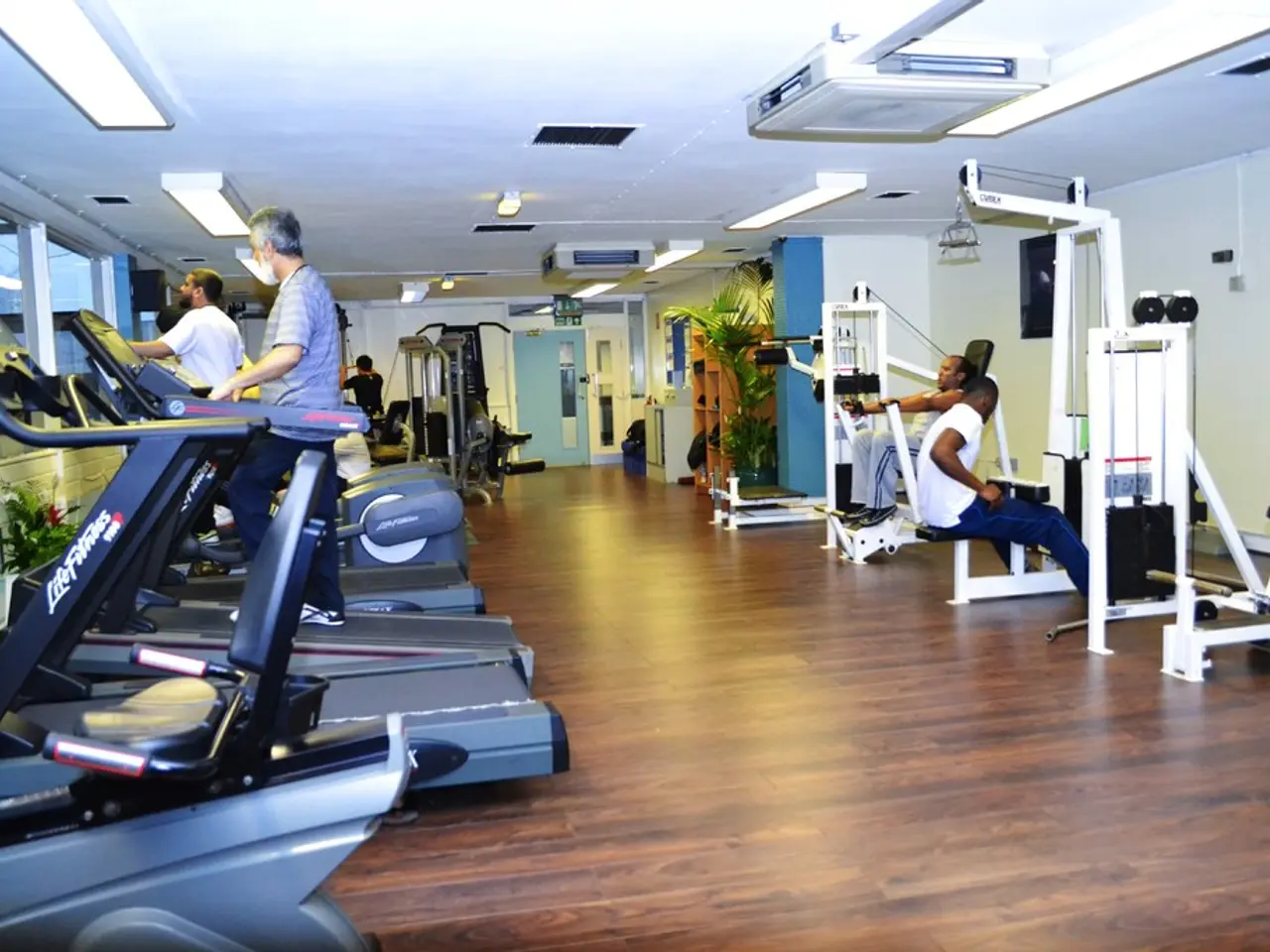Enhancing Work Memory through Physical Activity: Validated Methods and Advantages
In the pursuit of improved cognitive functions, a balanced approach to exercise has proven to be effective. Combining aerobic activities, strength training, and mind-body exercises can help enhance memory, executive function, and overall brain health.
Aerobic exercises, such as running, cycling, swimming, and brisk walking, are particularly beneficial for cognitive performance. These activities increase blood flow to the brain, promoting the growth of new neurons and potentially improving working memory [1][2][3].
One of the key benefits of aerobic exercise is its impact on memory and executive functions. General cognition, including working memory, executive functions such as inhibitory control and cognitive flexibility, and overall memory performance across different populations and ages are enhanced by aerobic exercise [1][2][3].
Moreover, aerobic exercise stimulates the growth of new neurons in the hippocampus—a key brain region for memory—and improves cerebral blood flow, which supports cognitive processes including working memory [1].
The benefits of aerobic exercise are not limited to the general population. For instance, meta-analyses show that aerobic exercise leads to moderate to large improvements in executive functions, particularly working memory, in children with attention-deficit hyperactivity disorder (ADHD) [3][2].
In addition, aerobic exercise has been shown to improve neurocognitive function in breast cancer survivors, possibly by reducing fatigue and improving cardiorespiratory fitness, which are linked to better cognition [4].
Furthermore, aerobic exercise interventions, even those lasting around 12 weeks, lead to better cognitive function including faster processing speed and greater mental flexibility, especially in older adults [5].
To maximise the benefits for working memory, aim for at least 150 minutes of moderate aerobic activity per week. Mind-body exercise sessions, such as yoga and tai chi, which combine physical movement with mental focus, can reduce stress, improve mindfulness, and enhance cognitive flexibility and memory. These sessions should ideally be at least 30 minutes long and can be found in local classes or online tutorials.
Strength training exercises like push-ups, squats, and weightlifting can build muscle mass and strength, but their direct impact on cognitive functions is generally less significant than that of aerobic exercises. However, it is important to find activities you enjoy doing to ensure you stick to an exercise routine.
Exercise is particularly beneficial for neurodivergent individuals, including those with ADHD, as it can help with focus and memory. Incorporating a mix of aerobic, strength training, and mind-body exercises into your routine can provide a balanced approach to enhancing cognitive performance.
[1] Hillman, C. H., Erickson, K. I., Kramer, A. F., & Tang, Y. Y. (2008). The influence of exercise on cognitive processes in older adults. Trends in cognitive sciences, 12(3), 105-113.
[2] Chaddock, L., & Hillman, C. H. (2011). Exercise for cognition and brain health: a review of human and animal research. The Journal of sporting sciences, 30(Suppl 1), S1-S11.
[3] Hillman, C. H., Watson, R. R., Halpern, D. F., & Engle, R. W. (2008). The cognitive neuroscience of executive control in children and adolescents. Current directions in psychological science, 17(5), 238-243.
[4] Taylor, J. L., Hillman, C. H., & Halpern, D. F. (2010). The influence of exercise on cognitive function in breast cancer survivors. Psychology of Sport and Exercise, 11(6), 663-671.
[5] Colcombe, S., Kramer, A. F., Erickson, K. I., Whitbeck, L. B., Scalf, P. E., & Hanson, J. L. (2006). Aerobic exercise training increases hippocampal volume in aging humans. The Journal of physiology, 571(1), 111-123.
- Aerobic exercises, such as running, cycling, and swimming, are particularly beneficial for neurodivergent individuals, including those with ADHD, as they can help improve focus and memory.
- Women who are breast cancer survivors can benefit from aerobic exercise, as it has been shown to improve neurocognitive function, possibly by reducing fatigue and improving cardiorespiratory fitness.
- In addition to physical benefits, aerobic exercise also supports mental health, enhancing memory, executive functions like decision-making, and overall brain health.
- Incorporating mind-body exercises like yoga and tai chi, which combine physical movement with mental focus, into a diverse exercise routine can further reduce stress, improve mindfulness, and boost cognitive flexibility and memory.
- A balanced approach to exercise that includes aerobic activities, strength training, and mind-body exercises can prove effective in improving cognitive functions, contributing to better health-and-wellness, fitness-and-exercise, and mental-health outcomes.




